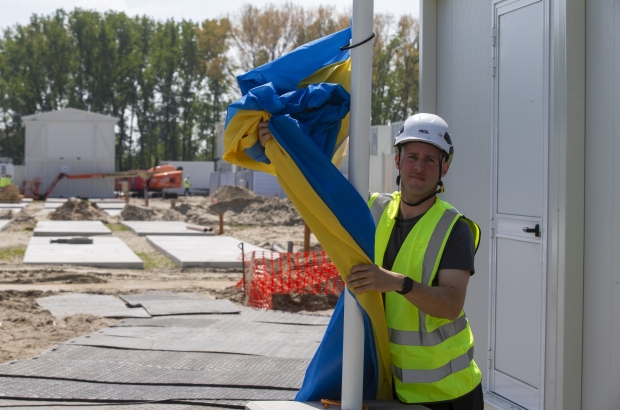- Daily & Weekly newsletters
- Buy & download The Bulletin
- Comment on our articles
Flemish host families call for long-term solutions for Ukrainian guests
Almost four months after the beginning of the Russian invasion of Ukraine, several Flemish municipalities are sounding the alarm as more and more families currently hosting Ukrainian refugees are asking to find alternative arrangements for their guests, RTBF reports.
This situation is increasingly pressing especially for those who are preparing for the summer holidays. Many families who want to go on vacation apparently do not want to leave their homes in the hands of the refugees they host. This week, the Union of Flemish Cities and Municipalities and the municipalities of Kraainem, Zaventem and Wezembeek-Oppem have called on the authorities to act quickly, otherwise some Ukrainian refugees would, according to them, risk ending up on the street.
No less than 10,000 families volunteered to take in fleeing Ukrainians. But at the time, the federal government also promised that this solution would be temporary. The Flemish families had therefore undertaken to offer their home for a maximum of three months, a period that has now elapsed.
The arrival of summer would not be the only reason that would explain this shift in welcome. There are also stories of disagreement, or a need to regain one's private life. The mayor of Wezembeek-Oppem goes so far as to talk about certain bad behaviours. Frédéric Petit evokes, among other things, states of drunkenness or a lack of respect and politeness. But overall, for many host families, it's simply time to move on to a more sustainable solution.
The municipalities feel that they have already done their best by organising reception facilities themselves, but say the extent of their resources is limited. The financial support proposed by the Flemish Government is not sufficient. According to the mayor of Zaventem, Ingrid Holemans, local administrations have also had to manage many additional tasks during the Covid crisis, and today, with the Ukrainian crisis, social services simply cannot maintain the support. In short, the demands are too much for these municipalities, which point to a lack of coordination at a higher level.
Flanders currently has more than 10,000 free reception places, especially reserved for Ukrainian refugees. These places are vacant, but they are not always in the areas where they are most needed, such as in overcrowded municipalities, or near the schools where Ukrainian children will have to go in September.
Another concern is the communication between different authorities. The municipalities, which are responsible for relocating Ukrainian refugees, are not always sufficiently informed of the possibilities that exist. The digital platform that has been set up does not allow them, for example, to locate the available places. In addition, the Flemish government has apparently not done enough to facilitate the work of the communes.
Bart Somers, the Flemish home affairs minister, called on mayors to contact the governor of their province to find solutions together with the neighbouring municipalities. This Friday, the Council of Ministers of the Flemish government is also due to meet to try to create 30,000 additional reception places. The hope is that these will not remain vacant, and that this time the local administrations will have all the tools to accommodate Ukrainian refugees as warmly as the thousands of households that have so far shown solidarity.


















